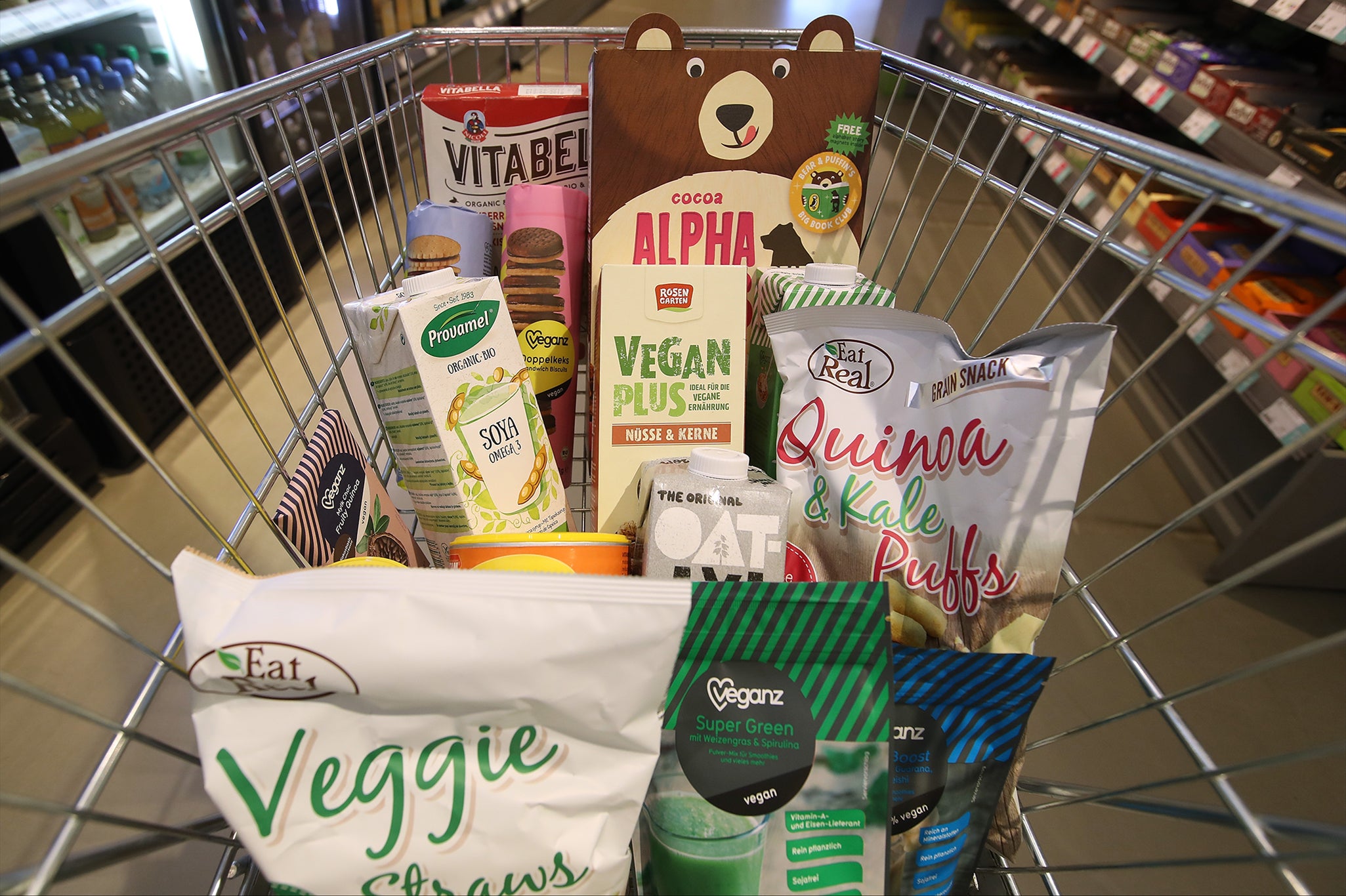How the rise of Veganuary is helping to prop up our supermarkets
Sales of plant-based products are surging among health-conscious consumers – even those who don’t necessarily identify as vegan or vegetarian, writes James Moore


There’s nothing that triggers the right’s antediluvian tendency like a vegan. When Burger King launched its “Impossible Whopper”, someone even found a vet to say the plant-based burgers could make men grow breasts because of the oestrogen to be found in the soya. It sparked quite the media fuss.
Goodness only knows what might happen if someone gave one to a gorilla. Perhaps someone might like to find a doctor to opine on the subject?
The spluttering incontinence veganism induces in certain elderly editors and commentators hasn’t stopped the supermarkets from jumping on the bandwagon, and you can see why in the latest sales data released by researcher Kantar.
It found that more than twice as many consumers bought at least one of the labelled plant-based products that grocers have been hawking in January 2020 when compared with the hedonistic prior month.
“Veganuary” is a horribly tortured construction – could we not just call it Vegan January or Vegan New Year? It’s clearly working, however, so what do I know.
Some more numbers: sales of meat substitutes such as soya mince or vegetarian burgers and sausages were 14 per cent higher than January last year.
Co-op has its Gro, Asda has its “plant-based” and Waitrose its vegan range, and all of them have been flying off the shelves. But so are common or garden plants sold without the need for any marketing. Sales of lentils were up 6 per cent. The humble lettuce posted a 10 per cent gain. Aubergines, an important ingredient in vegetarian/vegan cooking, racked up growth of 14 per cent.
The motivations of those opting for a plant-based new year are worthy of note. They were less ideological than they were based on the widely reported health benefits of eating fewer animal products.
A separate survey – Kantar’s headline data is based on a regular analysis of the shopping habits of a 30,000 strong demographically representative panel – was conducted among those who participated in (ugh) Veganuary.
It found health to be the most popular motivation (42 per cent) followed by environmental concerns (28 per cent) followed by ethical reasons (27 per cent).
The researcher puts the number of committed vegans at 2 per cent and vegetarians at 5 per cent of the population as a whole. But the number of people regularly eating vegetarian/vegan food is clearly very much higher than that and their numbers are growing fast.
The rising availability of high-quality products should help fuel that, creating something of a virtuous circle. The NHS might have cause to feel good if more people stick with healthier diets beyond January. Not to put too fine a point on it, but so too might planet earth.
As for the supermarkets, well they’re going to take growth wherever they can find it at a time when it’s proving desperately hard to come by. Kantar’s headline numbers showed that the sector is plodding along like a sloth after a busy day. Over the past 12 weeks, sales rose by just 0.3 per cent.
It was even worse for the traditional Big Four of Asda, Tesco, Sainsbury’s and Morrisons, all of which surrendered market share to Aldi, Lidl and Ocado, continuing a long-established trend, and to a lesser extent, the revived Co-op.
There’s an interesting postscript to this particular story.
Food price inflation remained subdued over the period under consideration (1 per cent overall). However, Kantar reports that it was at its highest in bacon, sausages and cooked meat products.
In addition to health benefits, there are economic gains to be had for consumers in shunning meat, and they’re becoming increasingly evident.
Join our commenting forum
Join thought-provoking conversations, follow other Independent readers and see their replies
Comments